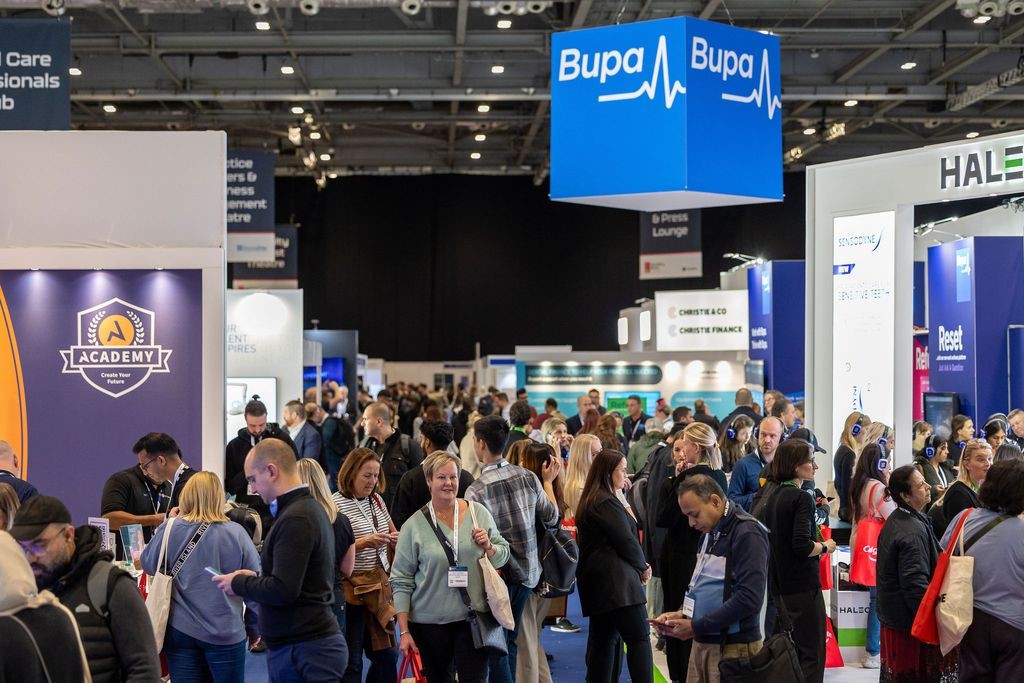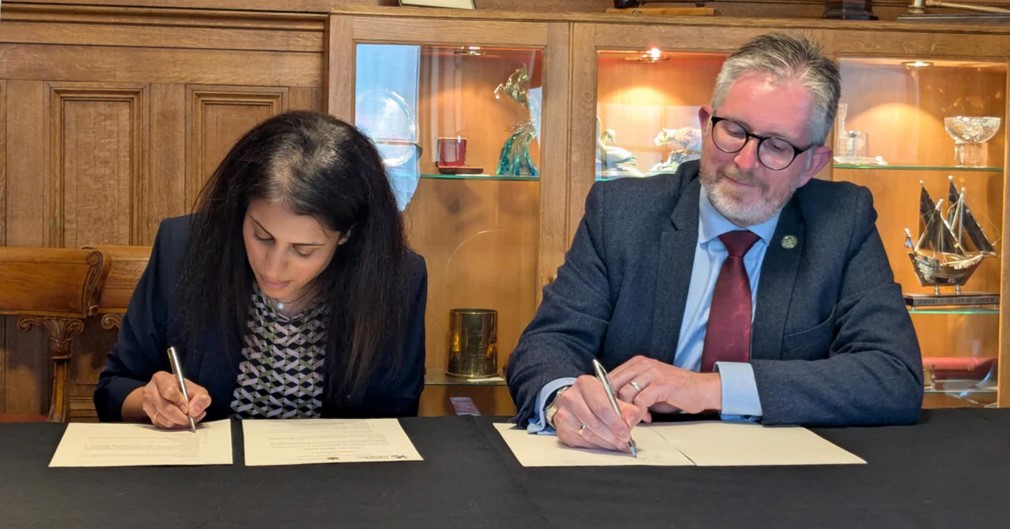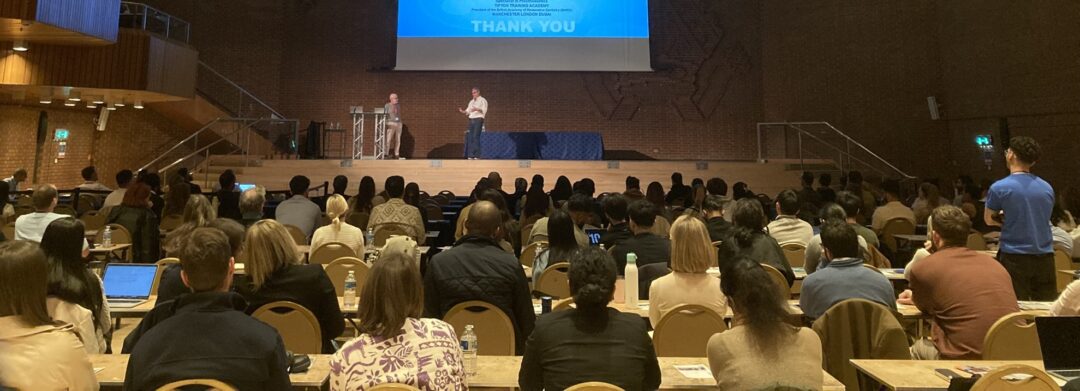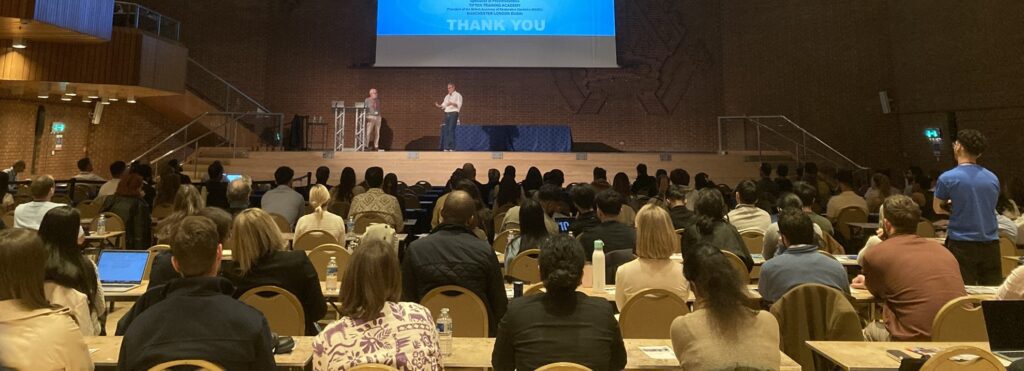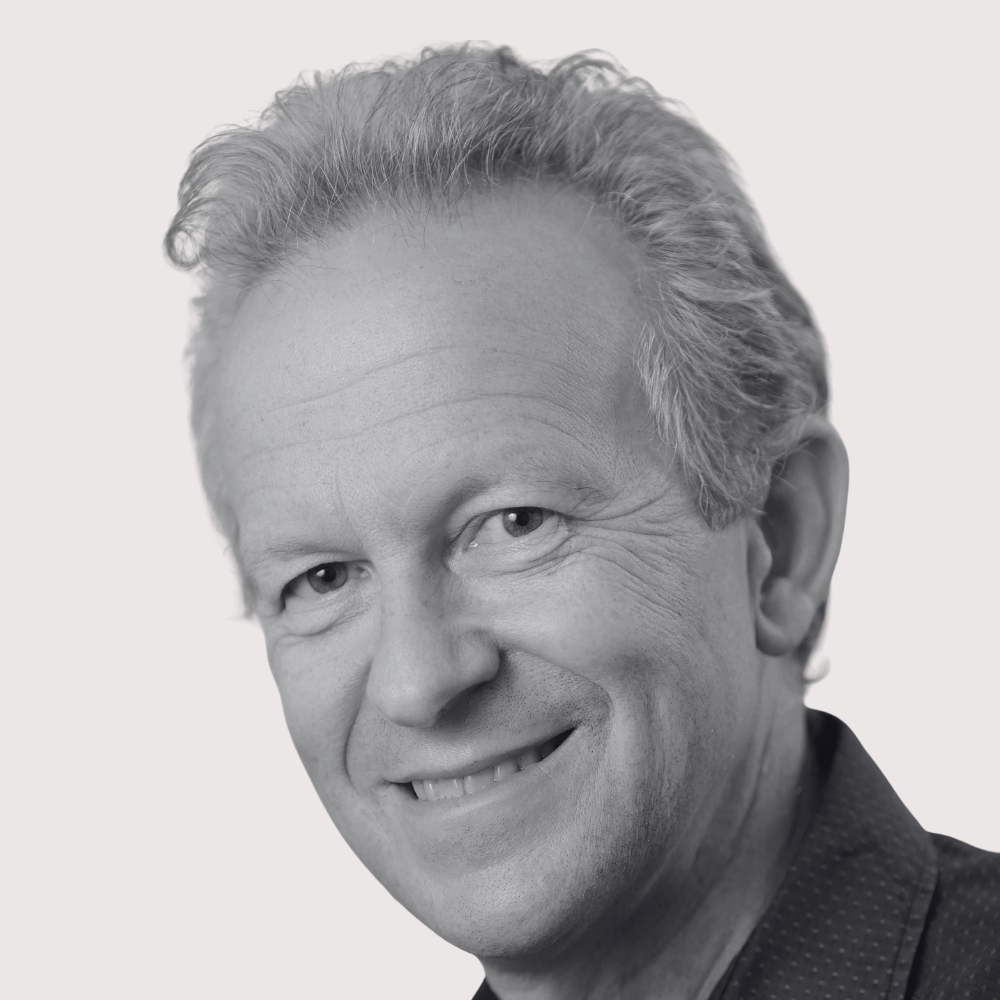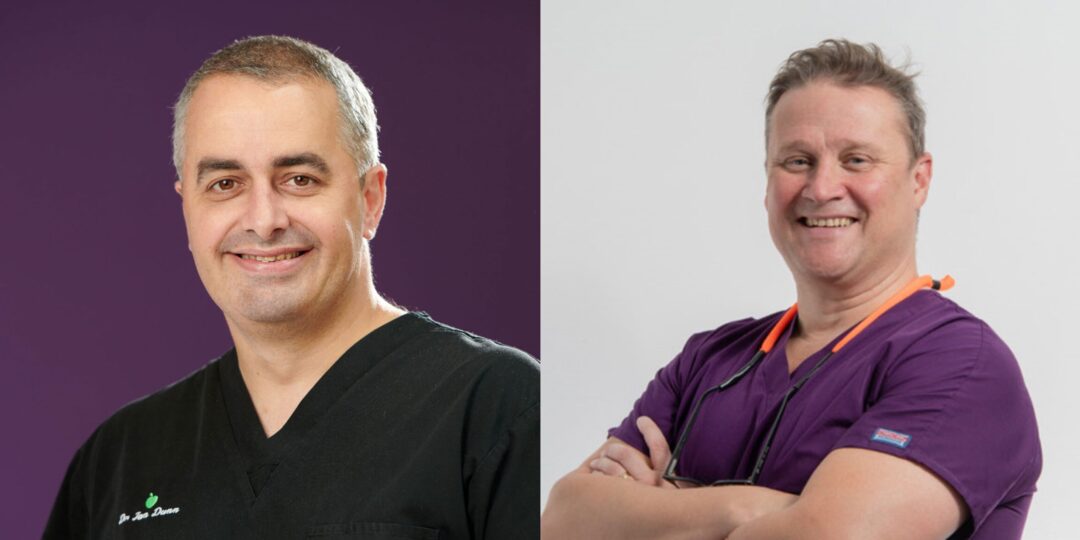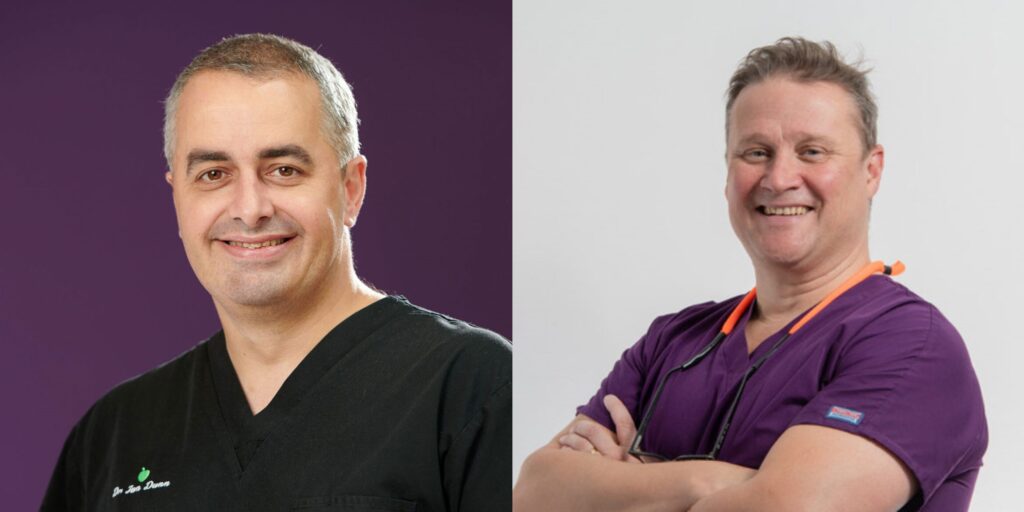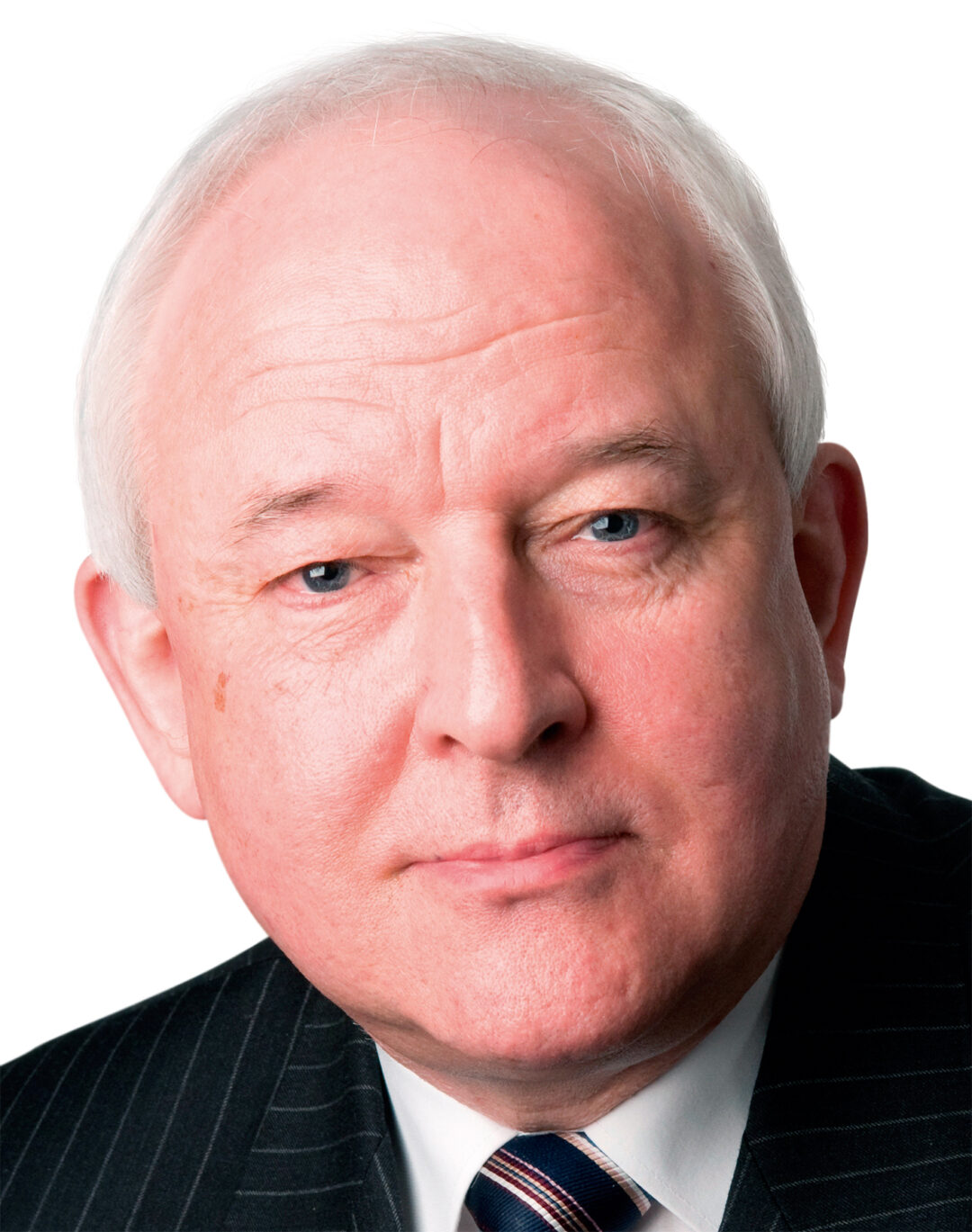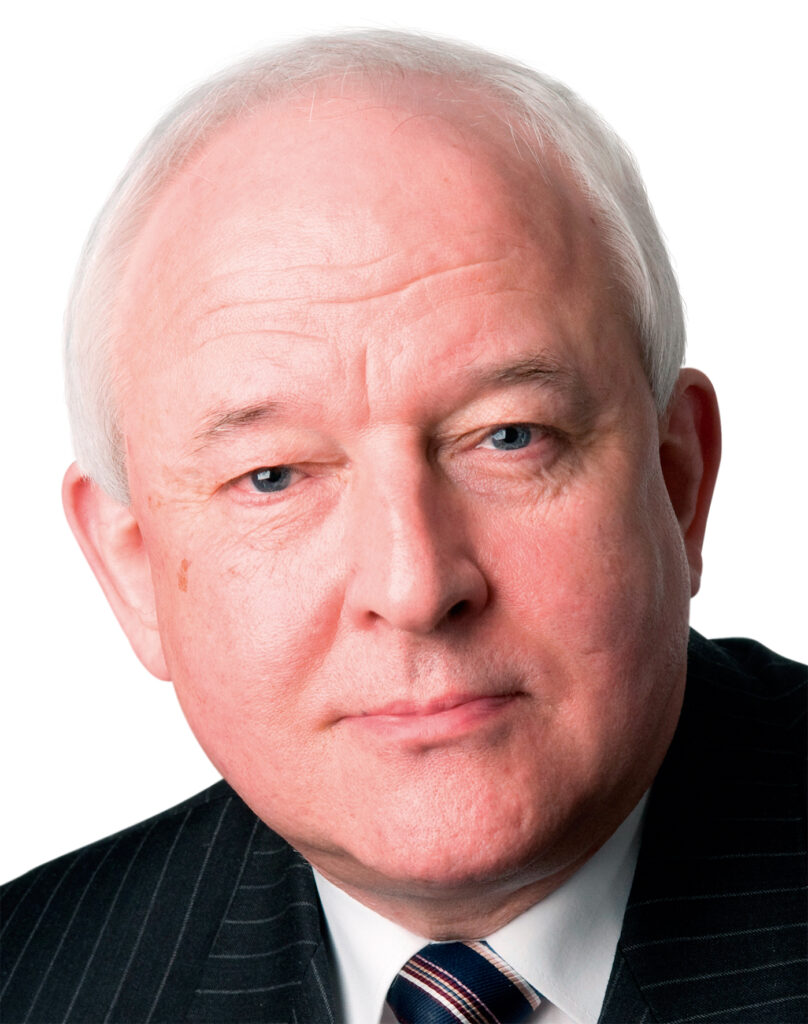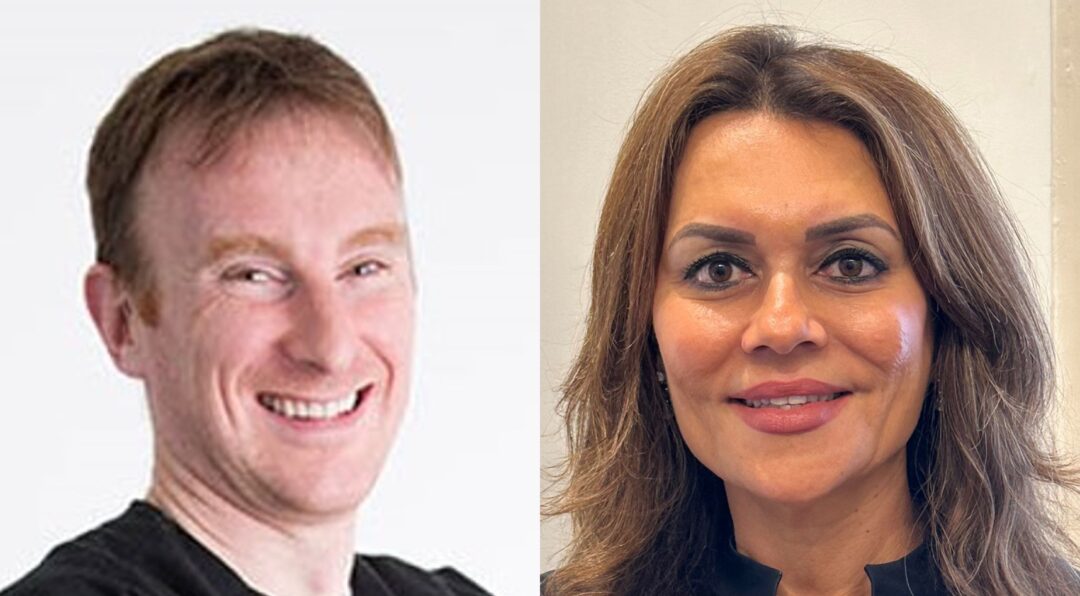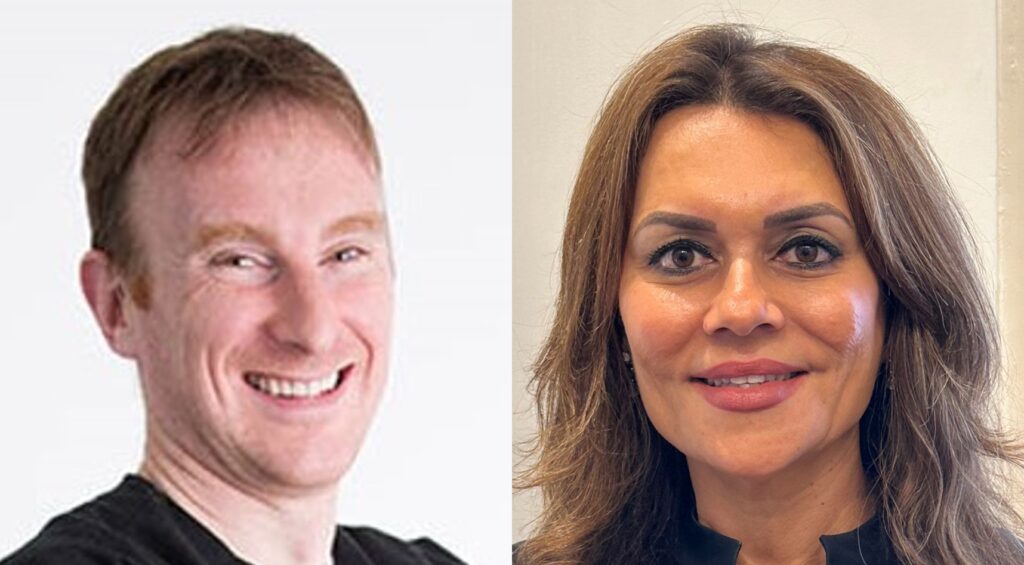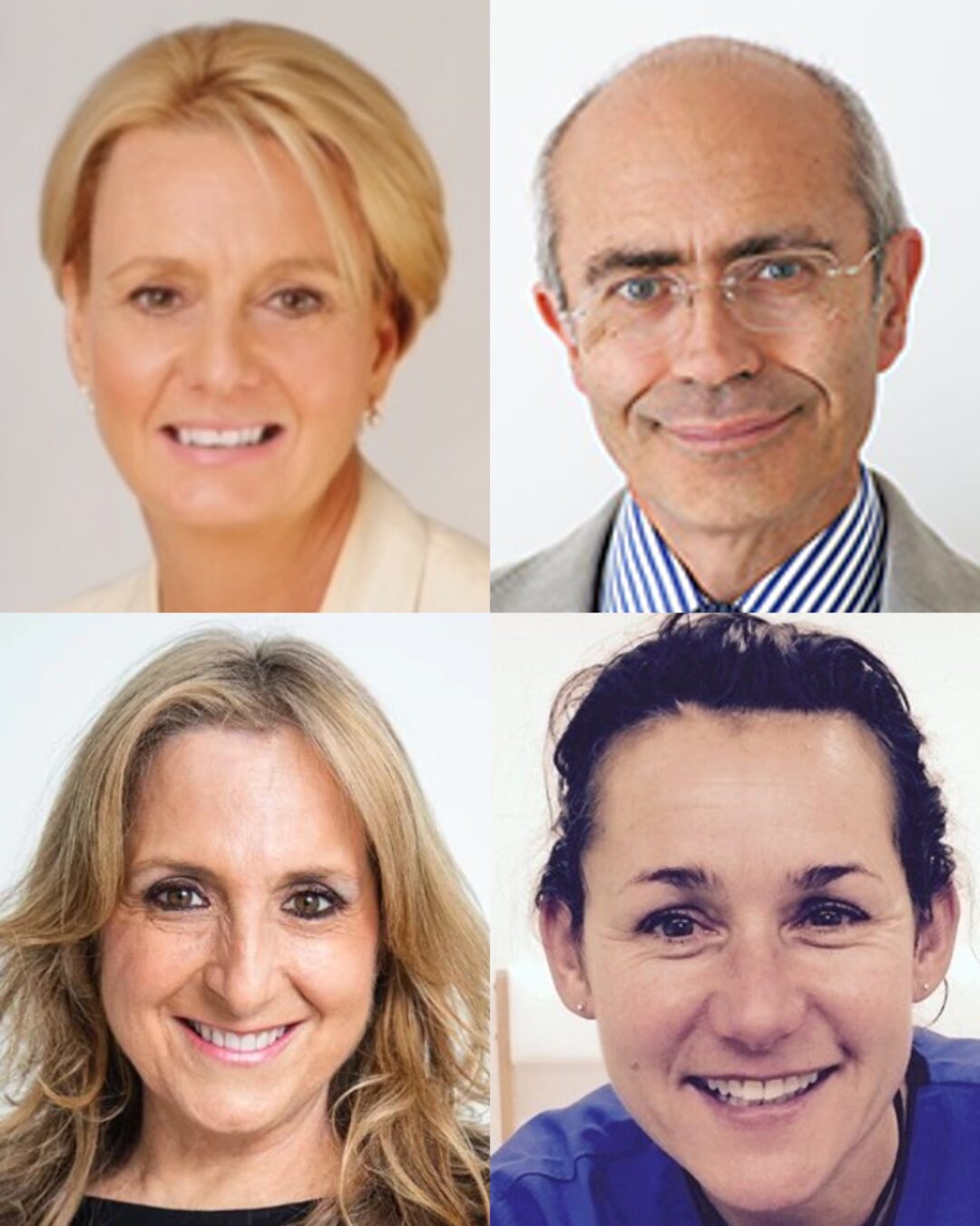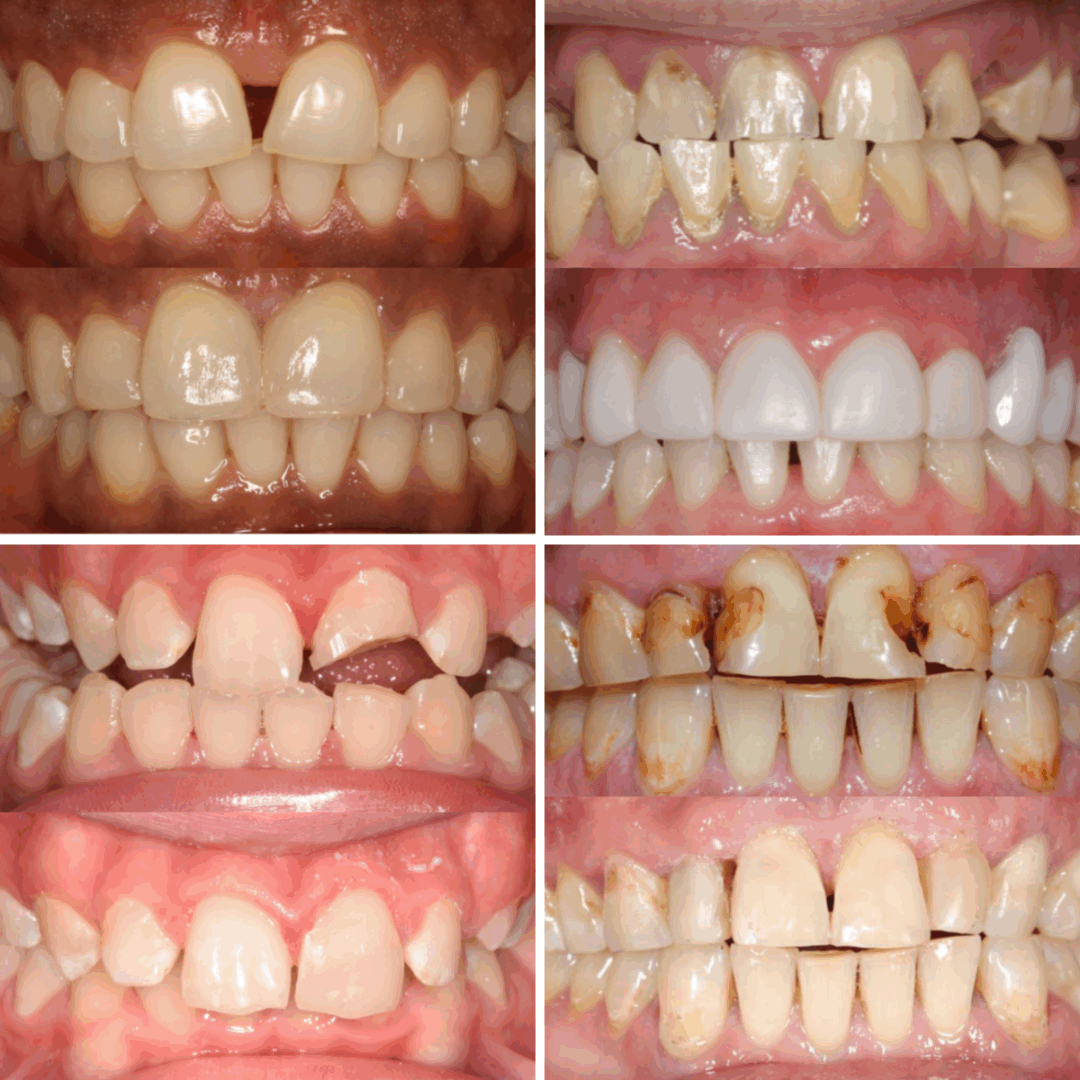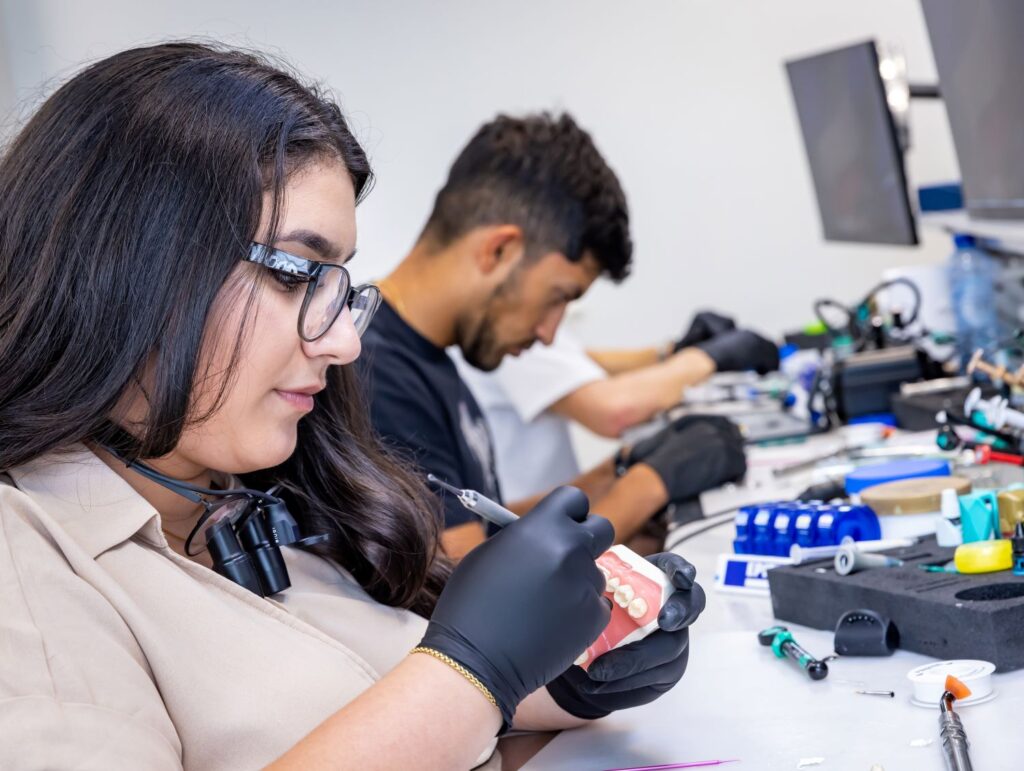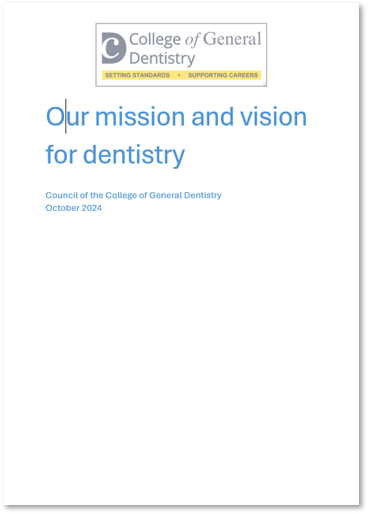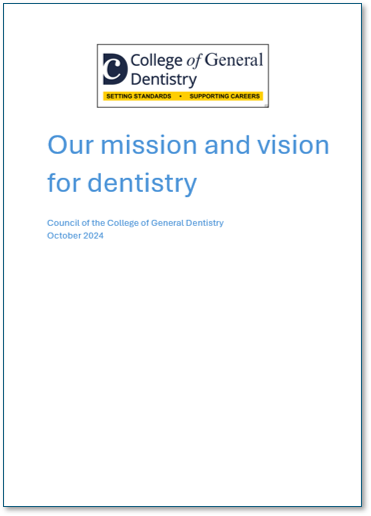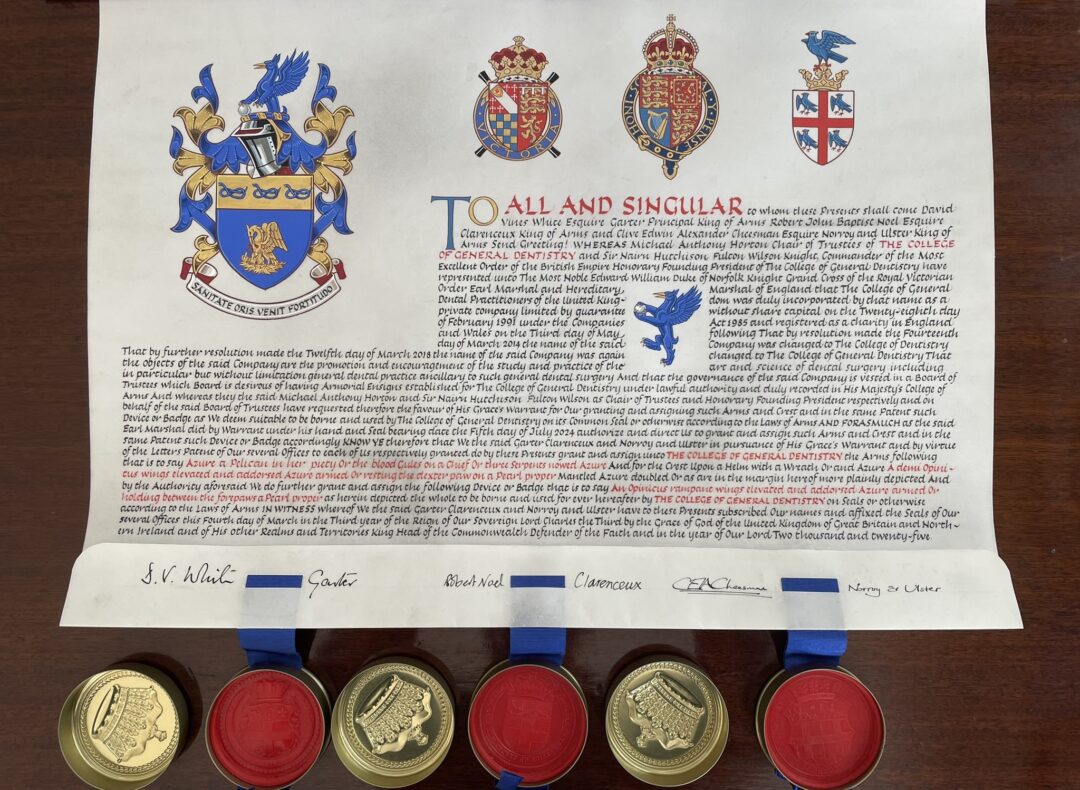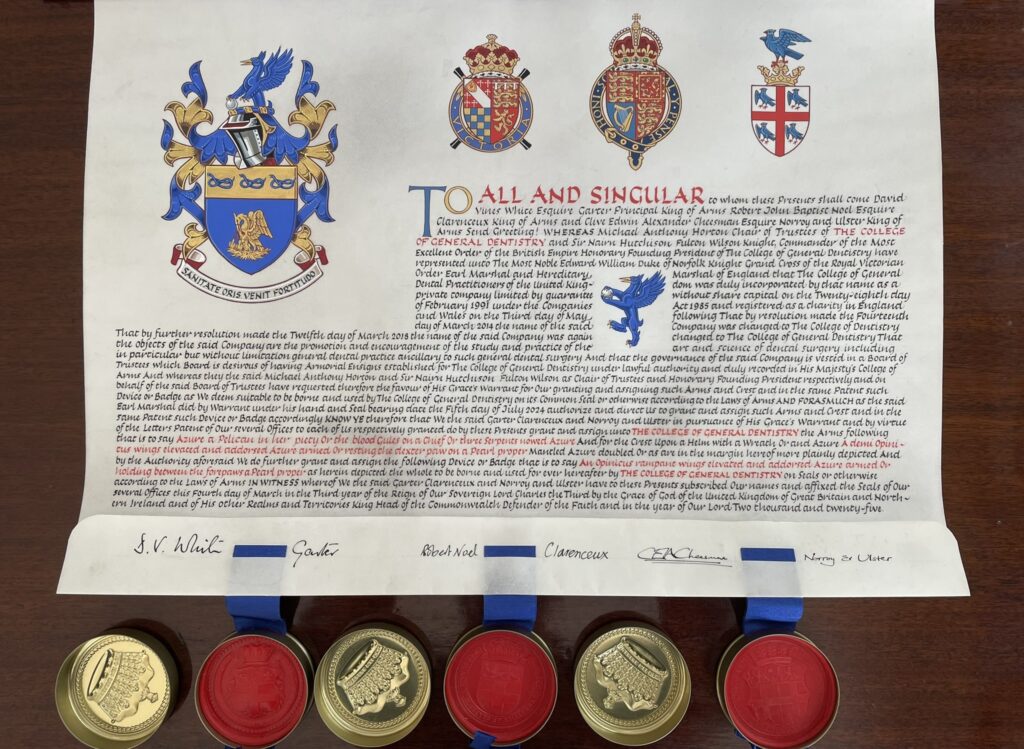The College will once again be an education partner at Dentistry Show London this year.
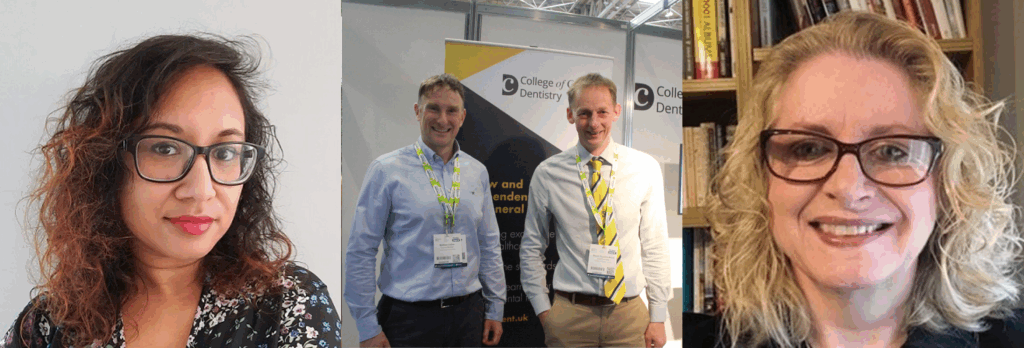
CGDent speakers at Dentistry Show London 2025: Preetee Hylton RDN (left) and Helen Kaney FCGDent (right). Centre: College representatives at the CGDent stand
The College will be a partner in two CPD theatres, delivering one lecture in each; the Dental Care Professionals Hub, which has a programme created specifically with dental hygienists, therapists, nurses and the wider team in mind; and the new Keynote Theatre, which brings together the latest policy updates with advances in technology and technique. Both lectures will be free of charge for members and non-members of the College alike:
AI in dentistry – an indemnity perspective*
Friday 3 October 2025, 9.15am-10.00am
Helen Kaney FCGDent, Senior Dento-legal Advisor with the Medical and Dental Defence Union of Scotland, will deliver this lecture in the Keynote Theatre. A dually qualified dentist and solicitor, Helen graduated BDS from Glasgow University in 1987 and spent many years in general dental practice as well as working as a clinical assistant in conservative dentistry and prosthodontics at Glasgow Dental Hospital and at Guy’s Hospital in London. She developed an interest in law and ethics early in her career and studied law, obtaining an LLB, and then trained and worked as a solicitor for several years, acting for doctors and dentists in clinical negligence claims, regulatory matters and Fatal Accident Inquiries (Coroner’s Inquests) on the instructions of UK indemnity providers. She has significant experience in advising and assisting dentists in the UK and Ireland and in several international jurisdictions, and spent 14 years at Dental Protection as a Dentolegal and Senior Dentolegal Adviser and latterly as Medico and Dentolegal Services Team Lead and Head of Dental Services, Scotland. She completed an MBA at Strathclyde Business School, is a Fellow of the Faculty of Forensic and Legal Medicine of the Royal College of Physicians, and served as an elected National Representative on the College Council from 2019-2025.
From disclosure to action: domestic abuse and the dental professional’s duty
Saturday 4 October 2025, 3.15pm-4.00pm
Preetee Hylton RDN, President of the British Association of Dental Nurses, will deliver this lecture in the Dental Care Professionals Hub. A full-time dental nurse and safeguarding lead at a private dental practice in London, Preetee is an Associate Examiner for the National Examining Board for Dental Nurses and delivers the NCFE CACHE Level 3 Diploma in Principles and Practice in Dental Nursing. A former receptionist, practice manager, lead dental nurse and clinical mentor to student dental nurses, she holds the NEBDN National Certificate in Dental Nursing, BDA Education Certificates in Oral Health and in Dental Radiography, a Preparing to Teach in the Lifelong Learning Sector qualification and a Certificate in Assessing Vocational Achievement, and in 2021 completed the DDS Treatment Coordinator Programme. A founding member and the former Study Club Co-Director of the ITI UK & Ireland Dental Nurses community, she is an honorary ambassador for the Mouth Cancer Foundation, a member of the editorial board of Dental Nursing, an Associate Member of the College and a past contributor to the Primary Dental Journal.
College representatives will also be available throughout the show at the College’s exhibition stand (B29) to talk to attendees about all aspects of membership, fellowship and the College’s vision for the profession.
It is not possible to register for any specific lecture in advance, however those wishing to attend will need to register for Dentistry Show London 2025, which is free for all dental professionals. Conference attendees will have access to up to 100 CPD lectures, as well as 180 exhibiting suppliers, and the opportunity to network with 4,000 dentists, practice managers, hygienists and therapists, dental nurses, technicians and laboratory owners.
*This title was updated on 22 August 2025; it was originally titled ‘AI and social media in dentistry – an indemnity perspective’

